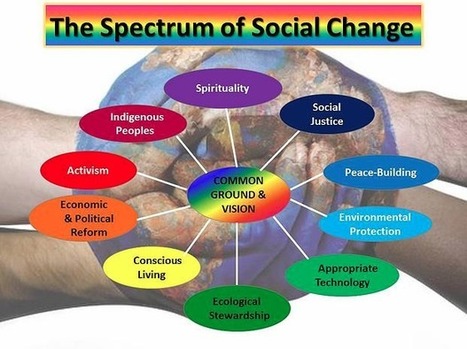The “Global Transformation Movement” (GTM) includes and involves hundreds of thousands organisations and hundreds of millions of people, from all sectors of human society and from all walks of life, who are all longing and working for a better world. Within this vast, diverse and inspiring movement there is a growing awareness that we already have the knowledge, the skills, the technologies, the tools, the mentors and the living examples to co-create a peaceful, just and healthy world.
Research and publish the best content.
Get Started for FREE
Sign up with Facebook Sign up with X
I don't have a Facebook or a X account
Already have an account: Login
on peer-to-peer dynamics in politics, the economy and organizations
Curated by
jean lievens
 Your new post is loading... Your new post is loading...
|
|













